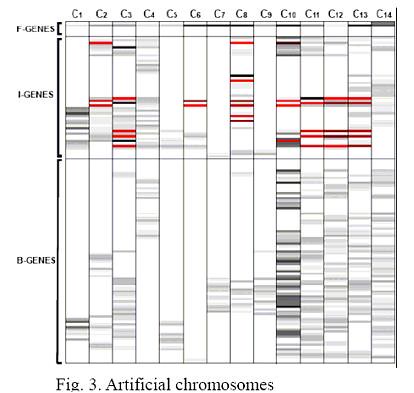
That "essence" of artificial evolution is computer code determining robot's propensity to "feel" happy, sad, angry, sleepy, hungry or afraid. It is modelled on human DNA, though equivalent to a single strand of genetic code rather than the complex double helix of a real chromosome.
Last summer professor Jong-Hwan Kim, Robot Intelligence Technology Laboratory (RIT), Dept. of EECS, KAIST, Republic of Korea visited CIRA 2005, 6th IEEE International Symposium on Computational Intelligence in Robotics and Automation at Helsinki University of Technology, Espoo where he presented a way on how to build artificial chromosomes for genetic robots that would be capable of human-style evolution. Stay tuned!
Technically more detailed presentation can be found in the paper: "The Origin of Artificial Species: Genetic Robot" by Jong-Hwan Kim, Kang-Hee Lee, and Yong-Duk Kim.

No comments:
Post a Comment